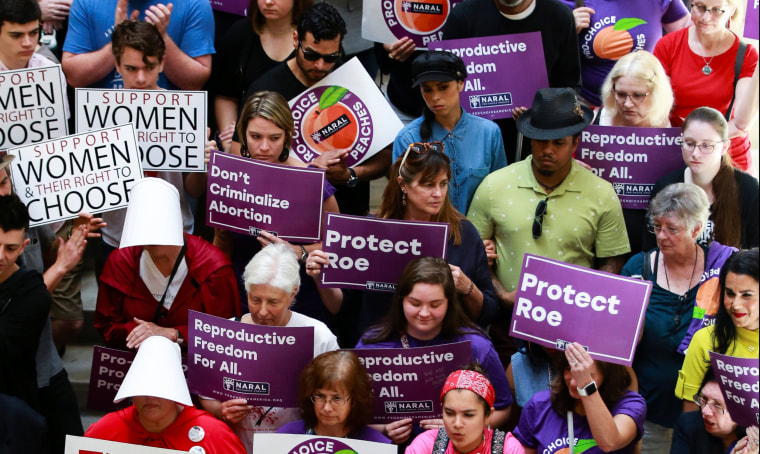Alabama Gov. Kay Ivey, a Republican, has signed into law a total abortion ban, containing exceptions only where there are serious health risks to the mother.
The law appears to conflict on its face with the 1973 Supreme Court holding of Roe v. Wade and its subsequent rulings. In the short term, a federal district court will most likely stop the law from going into effect. A federal appellate court will be constrained to agree with the lower court. After all, they are just following the precedent of Roe, as the lower courts are generally obligated to do.
If this challenge to the Alabama abortion ban makes it to the Supreme Court, however, it is possible that Roe v. Wade could be overturned.
Even though much of American society has come to rely on the principles of Roe v. Wade, the original case has always stood on a shaky legal foundation.
Even the high court conceded in Roe that the Constitution does not explicitly mention a right to privacy. Instead, the court looked at the history of judicial decisions recognizing personal privacy rights that emanated from other constitutional protections. The court concluded that this guarantee of personal privacy extended only to fundamental rights, which included areas such as procreation, contraception and childrearing.
The Roe opinion wonders aloud if this bundle of rights is inferred from the 14th Amendment's concept of personal liberty, or the Ninth Amendment's reservation of rights to the people. Uncertainty about the legal source of those rights didn't stop the court from extending a new privacy right to a woman's decision to terminate her pregnancy.
The anti-abortion argument that will appeal to the present-day originalist and right-leaning Supreme Court Justices is simple: Roe is premised upon rights that do not appear in the Constitution. Because these rights are imaginary, Roe can be overturned.
Another criticism of Roe is that when unelected judges infer new fundamental rights from the shadows of other rights, judges override the local democratic process, and silence the voices of the voters in states such as Alabama. These arguments will appeal to justices such as Neil Gorsuch and Clarence Thomas, for whom the original meaning of the text of a statute is its only meaning. Unpleasant outcomes do not justify changing the meaning of an enacted statute, or creating new rights to achieve what is perceived as a “fair” result.
Another argument against abortion is that even if there is a right to procreation, contraception and childrearing, it does not follow that abortion is a natural extension of these rights. To critics of Roe, the right to raise a child is not closely related to the right to kill a child. Of course, this argument presupposes that a fetus is a life — a hotly contested issue, which has evolved along with medical technology.
The Alabama statute has been criticized for omitting exceptions to the ban in cases of rape or incest. That omission was a strategic one: By removing these exceptions, the Alabama law is grounded in the principle that a fertilized egg is a life. For those against abortion, a rape/incest exception is a logical inconsistency: Life is life, whether or not the child’s father was a rapist. The exemption tees up the argument for the Supreme Court: Roe v. Wade should be re-examined, because the Alabama statute is consistent with a theory of life, equally valued, at conception.
For many abortion-rights advocates, Roe reached the right result, but the reasoning is admittedly susceptible to attack.
For them, the stronger argument is rooted in a principle called "stare decisis," Latin for "to stand by things already decided." Prior decisions on similar issues and facts are generally binding precedent on a court, but precedent can be overruled in certain situations. Only the Supreme Court has the luxury of departing from its own precedent. The lower courts must follow the Supreme Court's precedent.
Stare decisis may be what ultimately shields Roe and its right to privacy. Whether right or wrong, Roe has been around so long that people rely upon its protections, which have become part of the fabric of society. Even originalist judges might disagree with Roe, but may ultimately uphold it as longstanding precedent and the law of the land.
